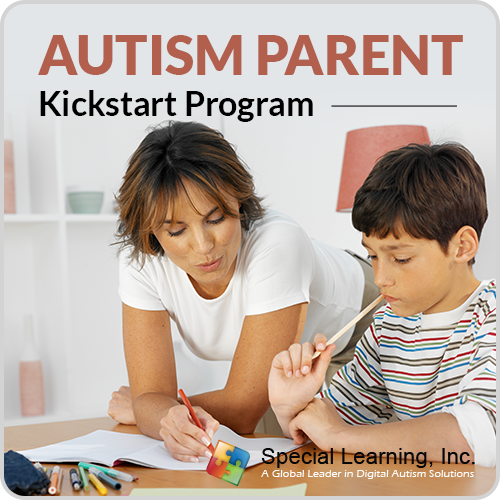Discrete Trial Training Overview
Discrete Trial Training (DTT) is an intensive treatment program used to help children with developmental disabilities such as Autism. DTT involves training a child with autism a variety of skills that they may not pick up on their own. DTT programs usually start by training essential pre-learning skills such as sitting and looking at the teacher; social skills such as looking at other people, talking, and interacting with others appropriately. Once the basic skills have been mastered, DTT works towards teaching higher-level skills.
The Following Skills Training Are Part Of A Comprehensive DTT Program:
Attention – Children with autism often begin a program with rather short attention spans. In DTT, tasks are broken down into short, simple trials. At the start of a program, interactions may only be a few seconds in length. As the child’s attention span increases, the length of the interactions increases accordingly.
Motivation – The difference between other children and those with autism may be that the latter may not be as motivated to work. DTT is implemented to build this motivation by the rewarding performance of desired behaviors and the completion of tasks with tangible or external reinforcement – e.g., treats, toys, and playtime. External reinforcement is often paired with praise, which eventually can replace the tangible reinforcements.
Stimulus Control – Discriminating between which stimuli we would like to think of as important – teacher/parent requests, invitations from peers, important environmental cues – e.g., school bells, alarms, and weather – and all the other “background” stimuli is often difficult for children with autism.
In DTT, the presented stimuli – typical instructions from a teacher or parent – are clear and relatively consistent. The child is given rewards only for behaviors in response to those stimuli so that eventually he comes to understand that certain stimuli are probably more deserving of his attention than others.
Generalization – The application of a behavior or skill across a number of environments or to a number of related behaviors is typically quite difficult for children with autism. Consequently, the instructions in DTT programs are designed to change over time; in content – the verbiage of the instruction – and context – who is giving the instruction, where and when it is being given.
Cause-Effect Learning and Observational Learning – Children with autism typically have a great deal of difficulty in “picking things up” from their environments. To compensate, DTT teaches skills and behaviors explicitly, without relying on these areas of difficulty.
Communication – Children with autism usually have a deficiency in expressive and verbal communication. In DTT, the instructions are initially given in a simple, concise, and clear manner. As the child progresses and his language becomes more receptive and stronger, the instructions can become more complex.
Perspective Taking and Understanding of Social and Behavioral Expectations – Although there is little built into the DTT structure to directly address deficits in social cognition and perspective-taking, they are designed to avoid reliance on these deficient skills. However, discrete trials can be designed to teach those deficient skills explicitly.
A discrete trial is a single cycle of a behaviorally-based instruction routine. A particular trial may be repeated several times in succession, several times a day, over several days – or even longer – until the skill is mastered.
There Are Four Parts, And An Optional Fifth, To A Discrete Trial.
- Discriminative Stimulus (SD) – The instruction or environmental cue to which the teacher would like the child to respond.
- Prompting Stimulus (SP) – A prompt or cue from the teacher to help the child respond correctly (optional).
- Response (R) – The skill or behavior that is the target of the instruction, or a portion thereof.
- Reinforcing stimulus (SR) – A reward designed to motivate the child to respond and respond correctly.
- Inter-Trial Interval (ITI) – A brief pause between consecutive trials.
Copyright © by Special Learning Inc. All right reserved.
No part of this article may be reproduced in any manner whatsoever without written permission except in the case of brief quotations embodied in critical articles and reviews. For information, contact Special Learning Inc., at: contact@special-learning.com












